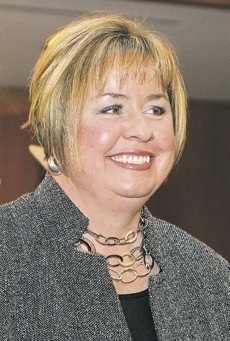Town OKs plan for ‘scaled-down’ development
Consultant hired to devise zoning ‘blueprint' for Nassau Coliseum property
As expected, the Hempstead Town Council unanimously approved its plan to devise a "zoning blueprint" for the Nassau Coliseum property.
The vote all but certified the town's intent to only consider a less comprehensive version of the Lighthouse proposal.
The new legislation authorized the town to retain an engineering and planning firm to devise what Town Supervisor Kate Murray calls a “zoning blueprint” for the 77 acres of county-owned land surrounding the Nassau Coliseum.
The town has authority over the environmental and zoning applications filed by the developers.
The Lighthouse project, led by New York Islanders owner Charles Wang and real estate executive Scott Rechler, calls for the renovation of the Nassau Coliseum and the redevelopment of the property surrounding it with a mix of retail, business and residential uses.
The proposal submitted to the town includes a five-star hotel, a new convention center, a sports and recreation center, a residential village, space for offices, retail and restaurants, a cinema and a canal.
The zoning blueprint, to be completed by early summer, would act as a set of guidelines for the type and scope of construction that would be permitted at the site. “We will be paying [the consultant] to make a zone to create a development that we believe the board can live with, one we believe the residents can live with, and yet at the same time a project that would take in a number of the elements that Wang has proposed,” Murray said. “It isn’t going to be the same, but a scaled-down version.”
Murray, who unveiled the plan publicly at a Monday-morning news conference, told reporters that she was optimistic about coming to a resolution that best fits the town, the developers and the residents. However, she added, "We think, without a jump-start, this project will really die a slow death."
The town will hire Frederick P. Clark Associates, Murray said. Clark was overseeing the town’s environmental analysis of the proposal until shortly after a September zoning hearing, when, she said, the Lighthouse group stopped paying for the consultant’s services. Murray said the town would pay no more than $150,000 for Clark's services.
According to town officials, the Lighthouse Development Group owes the firm about $200,000.
Murray also said that the Lighthouse group has not answered questions that were submitted by the town board following the September zoning hearing. Some of the major questions dealt with traffic mitigation, building heights and water usage. The group has “shut their operations down and gone silent,” Murray said. “The board understands that this piece of property is too important to be sort of lying in limbo and threatened with a development that goes down the drain.”













